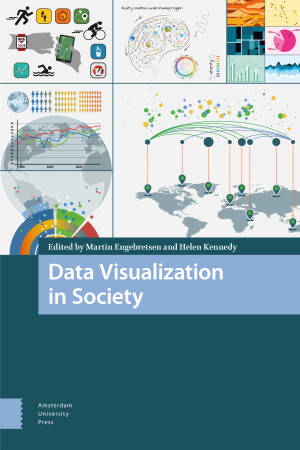"This book is a good resource for those wanting to study data visualisation in relation to social semiotics and epistemology as the methodologies and frameworks provided by the authors are well thought out and effective lenses for studying data visualisation. [...] This book has achieved its aims of solidifying, as well as inspiring, continuing discourse on the topic of data visualisation and society."
- Miriam McBride, Australian Institute of Aboriginal and Torres Strait Islander Studies, Journal of the Australian Library and Information Association, 70:1 (2021)
"The chapters in this expertly edited volume make a crucial contribution to critical studies in the area of data visualization. Focused on a broad range of topics including activism, literacy, accessibility, social disparity, gender politics, and professional practices, the papers demonstrate in case after case the rhetorical power of visualizations and the need to engage critically with that power."
- Johanna Drucker, Breslauer Professor and Distinguished Professor of Information Studies, UCLA
"This book offers unique and much needed perspectives on data visualization culture. While most books still approach the subject in a practical "how to" way, Data Visualization in Society offers a range of critical reflections on key social and culture dimensions of visualization culture. This is the book we have been waiting for."
- Lev Manovich, Professor of Computer Science, The Graduate Center, City University of New York & Director, Cultural Analytics Lab

